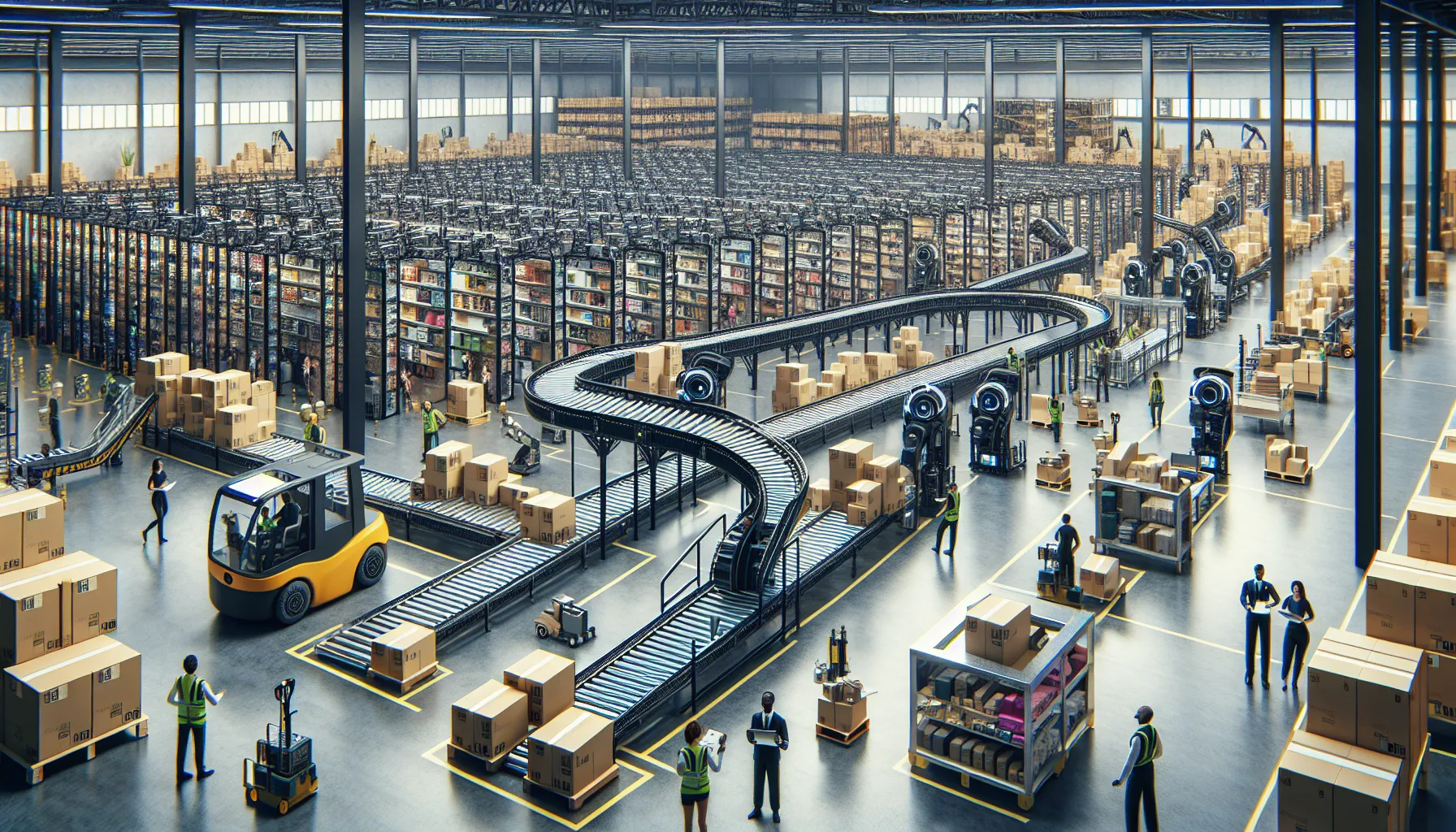Fulfilment Centres: The Heart of Contemporary Retail Logistics
Within the constantly changing landscape of retail, fulfilment centers have emerged as a crucial element of contemporary logistics. As consumers more and more expecting rapid and smooth shipping services, these centers serve as the backbone of business efficiency for companies of all sizes. Whether it's processing orders to managing inventory and delivering products directly to consumers, fulfilment centers play a significant role in fulfilling the demands of today's fast-paced environment.
The rise of e-commerce has further increased the demand for robust fulfillment center services. Businesses are working to enhance their supply chains and provide seamless shopping processes, which makes it crucial for them to team up with reliable fulfilment centres. These hubs not only streamline logistics but also enable companies to expand their operations, remain in the market, and react quickly to changing consumer preferences. As we delve deeper into the world of fulfillment centers, we will examine the various of services they offer and how they continue to influence the direction of retail logistics.
Comprehending Fulfillment Centres
Fulfilment centres play a critical part in the contemporary retail landscape, acting as the nexus between suppliers and consumers. Such centres are designed to streamline the logistics of order processing, inventory management, and product shipping. By holding a broad array of products, fulfilment centres allow businesses to minimize delivery times and manage their inventory more efficiently.
At the center of a fulfillment centre's operations is the ability to quickly process orders as they come in. This entails selecting products from shelves, boxing them securely, and dispatching them to customers. Cutting-edge technologies, such as mechanized sorting systems and real-time inventory tracking, assist ensure that orders are fulfilled accurately and promptly. Retailers capitalize on these centres to improve customer satisfaction by satisfying rising expectations for rapid delivery.
Moreover, fulfillment centres offer flexible solutions that can respond to the changing requirements of the retail market. Whether or not a company is experiencing peak shopping seasons or navigating fluctuating consumer trends, these centres offer the flexibility needed to oversee inventory levels and shipping processes successfully. By outsourcing fulfilment services, businesses can dedicate themselves to their core operations while nonetheless providing excellent service to their customers.
Technology Boosting Effectiveness

The adoption of advanced technology into fulfilment centre operations has transformed the way products are stored, picked, prepared, and shipped. Automated processes plays a key role, with robotic systems managing mundane tasks that once needed human effort. These automated solutions not only accelerate processes but also minimize the risk of error, resulting in accurate order fulfillment. From mechanical conveyor belts to automated pickers, technology optimizes the workflow and enables centres to handle greater volumes of orders effectively.
Moreover, advanced inventory management systems apply data analytics to enhance stock levels and increase order accuracy. These systems provide real-time visibility into stock levels, allowing fulfilment centres to restock items based on consumer needs and trends. By utilizing big data, operators can make smart decisions that enhance procurement and minimize waste, contributing to overall operational efficiency. This proactive approach ensures that customers receive their orders on time, reinforcing the significance of technology in modern retail logistics.
Additionally, customer relationship management tools integrated within fulfilment centres enhance communication and service quality. These platforms enable easy interaction with customers, offering updates on order status and shipment tracking. By providing transparency in the order process, fulfilment centres build confidence and satisfaction among consumers. The incorporation of technology not only streamlines backend operations but also enhances the overall customer experience, further solidifying the position of fulfilment centres at the heart of modern retail logistics.
Challenges in Fulfilment Logistics
Fulfilment logistics faces several difficulties that can greatly impact operational effectiveness and customer satisfaction. One of the key issues is inventory management. As the demand for products varies, maintaining the right stock levels can be challenging. Overestimating demand may lead to too much inventory, while underestimating can lead to stock outages, delaying deliveries and irritating customers. Effective inventory tracking systems are crucial, but setting up and maintaining these systems can require considerable investment and expertise.
Another important challenge is the rate of delivery expectations. In today’s market, customers increasingly expect rapid fulfilment and quick shipping times. This pressure puts strain on fulfilment centres to optimize their processes while maintaining reliability. Meeting such expectations often requires sophisticated technology and automation, which can be costly and complex to integrate. Moreover, the rivalry among retailers to offer faster delivery options may lead to increased operational costs, additionally complicating fulfilment logistics.
Lastly, logistics systems are often stretched due to external factors such as supply chain disruptions, seasonal fluctuations, and changing consumer behaviours. Natural disasters, geopolitical events, or even a sudden economic shift can disrupt logistics operations, leading to delays and increased costs. Fulfilment centres must remain agile and adaptable to navigate these challenges while ensuring dependability and service excellence. Robust backup planning and establishing strong partnerships within the supply chain are key strategies to lessen these challenges.